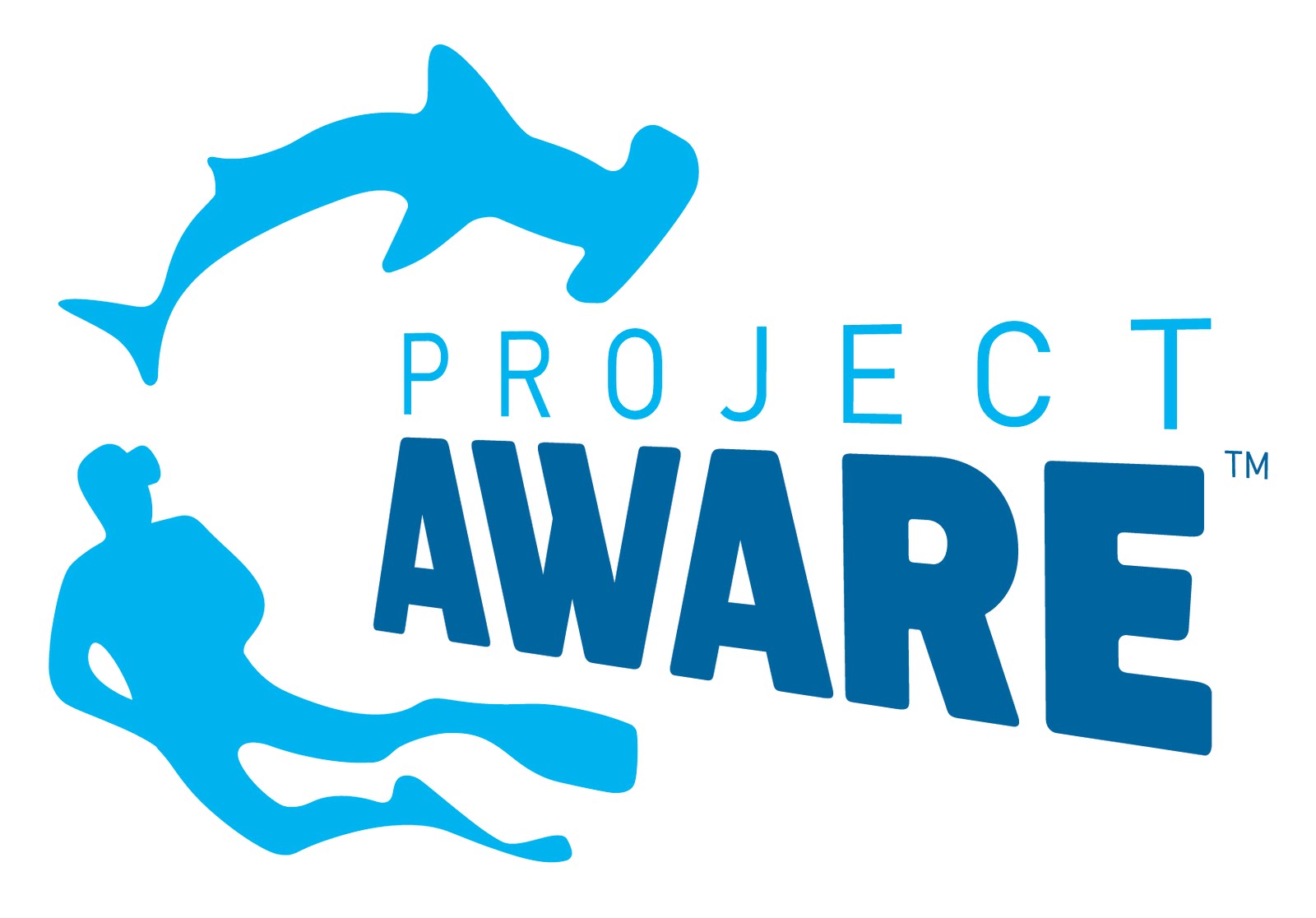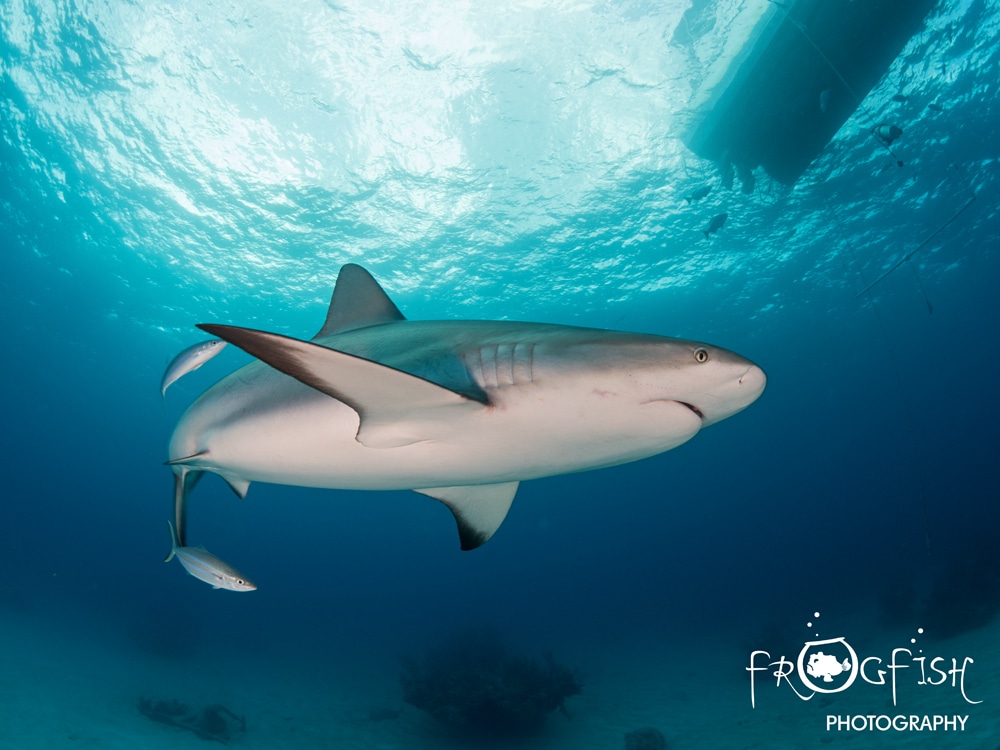Marine Life & Conservation
5 Facts People Who Fear Sharks Should Know

 Sharks need you. Don’t fear sharks! Fear an ocean without them… Domino Albert, Project AWARE® Associate Director, Global Communications, kindly lets us share her latest blog…
Sharks need you. Don’t fear sharks! Fear an ocean without them… Domino Albert, Project AWARE® Associate Director, Global Communications, kindly lets us share her latest blog…
We’ve come a long way since the horror-filled days of the 70s Jaws film that has promoted widespread fear about, not just great whites, but sharks of any kind. But thanks to new science, advocacy and media tools – conservationists are busting long-standing shark myths and securing much-needed protections for some of the world’s most vulnerable shark species.
1. Sharks – Predators or Preys?
Think twice – Humans should be the ocean’s caretakers, and yet could actually be considered the real “monsters of the deep”. In too many places, we’re emptying the ocean of sharks. According to the results of the first-ever global study of extinction risk conducted by the IUCN Shark Specialist Group, 25% of the world’s sharks and rays are threatened with extinction.
2. There are 1000+ known shark and ray species globally
Some eat plankton, others love sea lions. Humans are not part of a shark’s natural diet but tens of millions of sharks are killed each year for their meat, fins, liver, and other products. As many fisheries are unregulated, catches are significantly under-reported. Scalloped Hammerheads are classified by IUCN as Globally Endangered on the Red List, making them amongst the most threatened of all highly migratory sharks. While not out of the woods, White Sharks are amongst the world’s most protected sharks.
Their closest cousins however, aren’t faring so well: wide-ranging mako sharks are heavily fished around the world without any international or even EU limits, while porbeagle sharks can still be landed in the US and Canada despite needing many decades to recover from overfishing.
3. Fishing, trade, and market controls are lacking
Demand for shark fins is driving the wasteful practice of finning while interest in shark and ray meat is growing in many places. Largely uncontrolled fishing and bycatch are driving many shark and ray populations to the brink of collapse. It’s up to us to use our power as citizens and consumers. Urge your policymakers to promote shark and ray safeguards, and don’t open your wallet to shark and ray products unless you’re sure they’re sustainable.

4. Diversity is key. There’s no single silver bullet for shark conservation
Different regions have different issues, resources, and approaches. It requires a strong portfolio of science-based and/or precautionary catch limits, effective shark finning bans, bycatch mitigation, area protections, trade measures, and consumer awareness at all levels – international, regional and local – to safeguard these diverse species. That said, even small steps can help. Donating to shark conservation goes a long way towards protecting the most vulnerable shark species.
5. Respect your elders
In 2016, scientists estimated that Greenland sharks are incredibly long-lived, reaching sexual maturity at ~150 years of age and living 400 years or more. This finding and inferences about the species’ vulnerability led to widespread calls for conservation action. They were heavily fished in the first half of the 20th century for their liver oil. Today, they are taken primarily as incidental catch in a variety of fisheries, and also targeted by vessels from Greenland and Iceland to supply the demand for dried and fermented meat.
Divers are some of sharks and rays’ closest and most influential allies. Together, we are creating a powerful, collective voice to influence change. With your support, we’ve secured some amazing victories for our underwater friends. But we’re far from done. Join the movement and support shark saving strategies for the future.
Sharks need you. Don’t fear sharks! Fear an ocean without them… #HealthySharksHealthyOcean
Find out more at www.projectaware.org.
Blogs
The Ocean Cleanup Breaks 10,000,000 KG Barrier

The Ocean Cleanup, the global non-profit project, has removed a verified all-time total of ten million kilograms (22 million lbs.) of trash from oceans and rivers around the world – approximately the same weight as the Eiffel Tower.
To complete its mission of ridding the oceans of plastic, The Ocean Cleanup uses a dual strategy: cleaning up the Great Pacific Garbage Patch (GPGP) to remove the plastic already afloat in the oceans, while stopping the flow of plastic from the world’s most polluting rivers.
Through cleaning operations in the GPGP and in rivers in eight countries, the cumulative total of trash removed has now surpassed ten million kilograms. This milestone demonstrates the acceleration of The Ocean Cleanup’s impact, while underlining the astonishing scale of the plastic pollution problem and the need for continued support and action.
While encouraging for the mission, this milestone is only a staging point: millions more tons of plastic still pollute our oceans and The Ocean Cleanup intends to continue learning, improving and innovating to solve this global catastrophe.
This announcement comes as governments from around the world meet to continue negotiations to develop a new legally binding instrument to end plastic pollution at INC4 in Ottawa, Canada. Representatives of The Ocean Cleanup will be in attendance and the organization will be urging decision-makers to collaborate towards a comprehensive and ambitious global treaty which addresses plastic at all stages of its life cycle and in all marine environments worldwide, including in areas beyond national jurisdiction.
It is encouraging to see that the need for remediation is reflected in the various options for potential treaty provisions. It is essential that the final treaty contains clear targets for the remediation of legacy plastic pollution, and reduction of riverine plastic emissions.
Tackling plastic pollution requires innovative and impactful solutions. The treaty should therefore incentivize the innovation ecosystem by fostering innovations that make maximal use of data, technology and scientific knowledge – such as those designed and deployed by The Ocean Cleanup.
‘After many tough years of trial and error, it’s amazing to see our work is starting to pay off – and I am proud of the team who has brought us to this point.’ said Boyan Slat, Founder and CEO of The Ocean Cleanup. ‘While we still have a long way to go, our recent successes fill us with renewed confidence that the oceans can be cleaned.’
The Ocean Cleanup was founded in 2013 and captured its first plastic in 2019, with the first confirmed catch in the GPGP coming soon after the deployment of Interceptor 001 in Jakarta, Indonesia. After surpassing one million kilograms of trash removed in early 2022, the non-profit project has since progressed to the third iteration of its GPGP cleaning solution, known as System 03, and a network of Interceptors currently covering rivers in eight countries, with more deployments set for 2024.
About The Ocean Cleanup
The Ocean Cleanup is an international non-profit organization that develops and scales technologies to rid the world’s oceans of plastic. They aim to achieve this goal through a dual strategy: stemming the inflow via rivers and cleaning up the legacy plastic that has already accumulated in the ocean. For the latter, The Ocean Cleanup develops large-scale systems to efficiently concentrate the plastic for periodic removal. This plastic is tracked and traced through DNV’s chain of custody model to certify claims of origin when recycling it into new products. To curb the tide via rivers, The Ocean Cleanup has developed Interceptor™ solutions to halt and extract riverine plastic before it reaches the ocean. Founded in 2013 by Boyan Slat, The Ocean Cleanup now employs a broadly multi-disciplined team of approximately 140. The foundation is headquartered in Rotterdam, the Netherlands.
For more information, visit: theoceancleanup.com and follow @theoceancleanup on social media.
Marine Life & Conservation
Steve Backshall to headline Shark Trust’s flagship event: For the Love of Sharks

Join a host of amazing, shark loving, speakers including Steve Backshall and the Shark Trust team for an evening celebrating shark conservation at the Royal Geographical Society in London this November.
Date: 29th November 2024
Time: 6-10pm
Location: Royal Geographical Society, London
Tickets: https://www.sharktrust.org/Event/flos24
The event will be a celebration of all things shark. Those lucky enough to get hold of tickets will hear from engaging guest speakers with a passion for sharks.
The line-up includes (*subject to change if unforeseen circumstances arise)
Steve Backshall: One of television’s busiest presenters, BAFTA award-winning wildlife expert Steve has been passionate about the wild world ever since he was young.
Steve’s impressive TV career has taken him all around the world, investigating a wide array of species and environments. Steve has filmed over 100 hours of children’s wildlife programmes with the BAFTA award winning Deadly 60 franchise and recently, with Sky Nature, for his new series ‘Whale with Steve Backshall’. He has been a patron for the Shark Trust for 10 years.
Simon Rogerson: is a photojournalist specialising in natural history, diving and the sea.
He is editor of SCUBA magazine, the official journal of the British Sub-Aqua Club. Simon started his career as a crime reporter but gravitated towards his ‘less depressing’ interest in underwater exploration, joining the staff of DIVE magazine in 1999. In 2005 he was named ‘Editor of the Year’ in the PPA’s Independent Publishing Awards. Simon also works as a freelance writer, contributing frequently to the Sunday Times and Telegraph, in addition to BBC Wildlife, Esquire, and a host of international diving magazines. He is the author of a book, Dive Red Sea, published by Ultimate Sports. Now based in Berkshire, Simon has been a Patron of the Shark Trust for 20 years.
More speakers to be announced soon. Head to the Shark Trust website to learn more.
The evening will also allow guests the final chance to see the Oceanic 31, shark art exhibition. Some of the artwork will be auctioned/raffled at the event, while the rest will be auctioned online to raise money for the Shark Trust Oceanic Programme.
For the Love of Sharks is an evening with something for everyone who is interested and fascinated by sharks. Join the Shark Trust, their Patrons, Trustees and Staff, along with a host of supporters for this celebration of shark conservation.
For more information or to buy a ticket: https://www.sharktrust.org/Event/flos24
-

 News3 months ago
News3 months agoCapturing Critters in Lembeh Underwater Photography Workshop 2024: Event Roundup
-

 Marine Life & Conservation Blogs3 months ago
Marine Life & Conservation Blogs3 months agoCreature Feature: Swell Sharks
-

 Blogs2 months ago
Blogs2 months agoMurex Resorts: Passport to Paradise!
-

 Gear Reviews4 weeks ago
Gear Reviews4 weeks agoGEAR REVIEW – Revolutionising Diving Comfort: The Sharkskin T2 Chillproof Suit
-

 Blogs3 months ago
Blogs3 months agoDiver Discovering Whale Skeletons Beneath Ice Judged World’s Best Underwater Photograph
-

 News3 months ago
News3 months agoPADI Teams Up with Wellness Brand Neuro to Drive Ocean Change and Create a Blue State of Mind
-

 Gear Reviews3 months ago
Gear Reviews3 months agoGear Review: Oceanic+ Dive Housing for iPhone
-

 News3 months ago
News3 months agoWorld’s Best Underwater Photographers Unveil Breathtaking Images at World Shootout 2023





